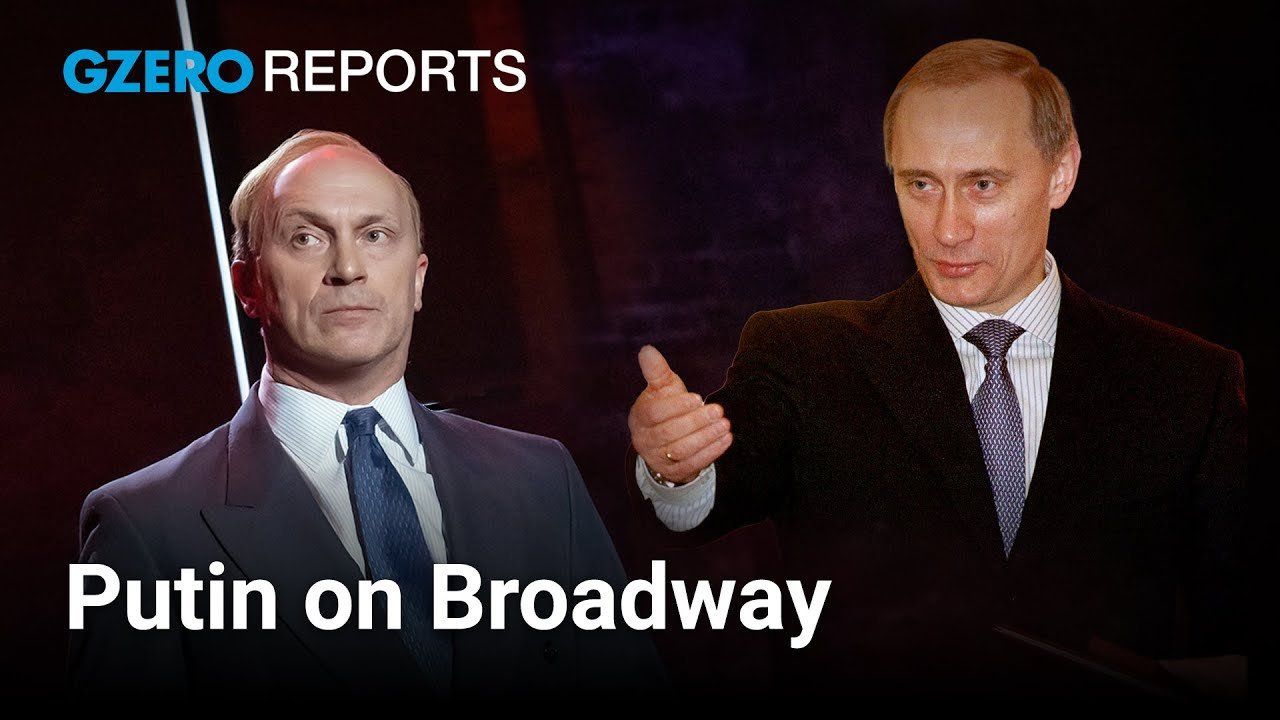GZERO World Clips
"Patriots" on Broadway: The story of Putin's rise to power

"Patriots" on Broadway: The story of Putin's rise to power | GZERO Reports

“Putin was my mistake. Getting rid of him is my responsibility.”
It’s clear by the time the character Boris Berezovsky utters that chilling line in the new Broadway play “Patriots” that any attempt to stop Russian President Vladimir Putin’s rise would be futile, perhaps even fatal.
The show, which opened for a limited run in New York on April 22, stars Tony and Emmy-nominated actor Michael Stuhlbarg as Berezovsky, a larger-than-life oligarch whose billions buy him into the highest ranks of Russian power after the fall of the Soviet Union. When asked by President Boris Yeltsin to find a successor to lead the fledgling nation, Berezovsky taps Putin, a former KGB agent and ex-mayor of St. Petersburg who few knew well.
The play’s director, Rupert Goold, said while the play is set in a specific moment in modern Russian history, the script has needed changes along the way as major developments colored Putin’s story.
“It does feel like the filter on it changes every day because something else happens every day,” actor Will Keen, who originated the role of Putin in London two years ago, told GZERO’s Tony Maciulis. “It feels like the play has, overall, become darker and darker. It seems to become more and more perturbing.”
“Patriots'' was written by Peter Morgan, creator of Netflix’s “The Crown” and the play puts a similarly-styled lens on Russian history. It’s Shakespearean, more melodrama than history lesson, but the characters are very real. The Broadway audience will also likely receive the show differently than the West End crowd in London, in part because of America’s long and contentious relationship with Russia, and the current polarization in US politics and discourse.
“Patriots” is playing a 12-week run at Broadway’s Barrymore theater.
In this Quick Take, Ian Bremmer reacts to President Trump’s State of the Union address, calling it “a rehashing of the greatest hits” with little new policy direction.
Small business hiring surged 7% above the 2024 average in December, led by a surprise rally in retail. But with uncertainty still historically high and mounting concerns over tariffs, can this momentum survive 2026? Explore the data behind the resilience of the US small business sector. Get the latest economic insights from Bank of America Institute.